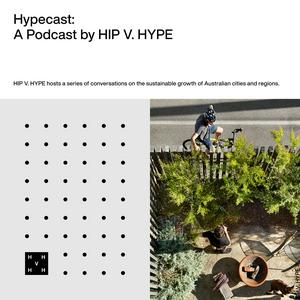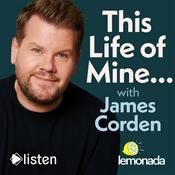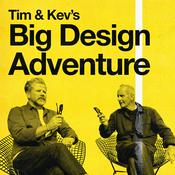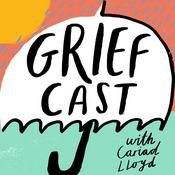Available Episodes
5 of 26
- Low Carbon Concrete | Future Materials in PracticeConcrete is the most widely used manufactured material on Earth — second only to water in global consumption — and one of the largest contributors to global carbon emissions. The race to develop and scale low-carbon alternatives is well underway, with the potential for an unprecedented reduction in CO₂ emissions.In this episode, HIP V. HYPE Founder Liam Wallis joins Rackel San Nicolas, Associate Professor - Electrical, Mechanical and Infrastructure Engineering, University of Melbourne; Daniel Prohasky, CEO, Curvecrete & Architectural Engineering Lecturer, Swinburne University of Technology and Alex Goad, Founder, Reef Design Lab. As material science rapidly advances, the challenge lies in translating innovation into real-world application. What technologies already exist? Do they actually work? And if so, why aren’t we seeing them widely adopted across the built environment?Join us for a live recording to separate fact from fiction and explore the role of low-carbon concrete in shaping a more sustainable built environment — and beyond.--We respectfully acknowledge that every project enabled or assisted by HIP V. HYPE in Australia exists on traditional Aboriginal lands which have been sustained for thousands of years. We honour their ongoing connections to these lands, and seek to respectfully acknowledge the Traditional Custodians in our work. Hosted on Acast. See acast.com/privacy for more information.--------49:21
- Social Value | Defining, Delivering and Measuring ImpactSocial value refers to the positive social, environmental, and economic impacts of a project beyond financial gains. However, there is currently no standardised way to define or measure social value in the built environment in Australia; this lack of clarity makes it hard to assess a project’s impact, maximise positive outcomes and ensure accountability.In this episode, HIP V. HYPE's Better Cities & Regions Associate Alexandra Faure joins Samantha Peart, Global Head of Sustainability, Hassell; Ingrid Langtry, Place & Experience Expert and Gavin Ashley, Head of Better Cities & Regions and a Director of Sustainability, HIP V. HYPE. As our society faces growing environmental and social challenges, a clearer, systematic approach is required to meaningfully incorporate social value into projects of all scales.Join us for a live recording to explore practical ways to define, deliver and measure meaningful social value for architects, planners, developers, builders, economists or citizens alike.--We respectfully acknowledge that every project enabled or assisted by HIP V. HYPE in Australia exists on traditional Aboriginal lands which have been sustained for thousands of years. We honour their ongoing connections to these lands, and seek to respectfully acknowledge the Traditional Custodians in our work. Hosted on Acast. See acast.com/privacy for more information.--------50:33
- The Role of Research | Creating Meaningful Feedback LoopsToo often neglected in the project cycle, post-occupancy research seeks to understand gaps between design intent and real-world performance. Energy use, indoor environmental quality (IEQ), user satisfaction, culture & community, unintended consequences (good & bad)…In this episode, HIP V. HYPE's Founder Liam Wallis joins Dr Pippa Soccio, Senior Research Scientist – Building Monitoring, CSIRO; Dr Christopher Jensen, Lecturer in Architecture, Building and Planning, Melbourne School of Design and Merrick Morley, PhD Candidate, Melbourne School of Design. Join us for a live recording to explore how integrating post-occupancy research can optimise building performance, enhance occupant experience and improve the longevity and resilience of our buildings.--We respectfully acknowledge that every project enabled or assisted by HIP V. HYPE in Australia exists on traditional Aboriginal lands which have been sustained for thousands of years. We honour their ongoing connections to these lands, and seek to respectfully acknowledge the Traditional Custodians in our work. Hosted on Acast. See acast.com/privacy for more information.--------54:15
- The Climate is Changing | Is Our Planning System Keeping Up?Climate resilience is the ability of social, economic, human engineered and natural systems to withstand and recover from hazardous climatic events while maintaining their core structures and functions. Climate change related hazardous events and associated risks are rapidly evolving. Victoria’s planning scheme is not keeping pace. A lack of coordination, continuity and investment in the best available data, inadequate integration of climate risk considerations and frankly the scheme’s inflexibility is hindering effective planning. In this episode, HIP V. HYPE's Head of Better Cities & Regions and Director of Sustainability Gavin Ashley joins Dr Judy Bush, Senior Lecturer in Urban Planning, University of Melbourne; Jane Keddie, Director, Hansen Partnership; Prof Alan March, Professor in Urban Planning, University of Melbourne and Chloe Johnston, Manager - Infrastructure Advisory, Aurecon. Join us for a live recording seeking to understand how our planning scheme can be better designed to adapt to the dynamic challenges of climate change to create a more resilient and prosperous future for all. --We respectfully acknowledge that every project enabled or assisted by HIP V. HYPE in Australia exists on traditional Aboriginal lands which have been sustained for thousands of years. We honour their ongoing connections to these lands, and seek to respectfully acknowledge the Traditional Custodians in our work. Hosted on Acast. See acast.com/privacy for more information.--------1:03:50
- More & Better Homes | Community HousingAustralia needs more housing, period. This is especially important in the community housing sector, and we applaud the efforts of governments to increase funding and set targets to seek to address the dire shortage. Community housing is secure, affordable, long term rental housing managed by not-for-profit organisations for people on low incomes or with special needs. Providers are registered and regulated by the state government.In seeking to rapidly increase supply, how do we ensure that the homes we build are optimised for high performance, reduced operational energy costs, improved health and comfort outcomes and increase resilience against impacts of climate change for the next 50-100 years…?In this episode, Founder of HIP V. HYPE Liam Wallis joins Lucy Simms, Chief Commercial Officer, Women's Property Initiatives; Kathy Johnson, Managing Director at Yarraport and David Mahony, Head of Better Buildings and a Director of Sustainability at HIP V. HYPE to explore immediate action to optimise alignment between affordability and sustainability for community housing. What are the barriers, what are the opportunities and where are our blind spots…?--We respectfully acknowledge that every project enabled or assisted by HIP V. HYPE in Australia exists on traditional Aboriginal lands which have been sustained for thousands of years. We honour their ongoing connections to these lands, and seek to respectfully acknowledge the Traditional Custodians in our work. Hosted on Acast. See acast.com/privacy for more information.--------55:03
More Arts podcasts
Trending Arts podcasts
About Hypecast
Welcome to Hypecast, a podcast by HIP V. HYPE, where we discuss new ideas around housing, sustainability and climate action to explore ways to support the sustainable growth of our cities and regions. Season 3 of Hypecast is recorded live at the Better Building Exchange in Brunswick, a space dedicated to amplifying ideas, skills, technologies and relationships to more rapidly decarbonise our built environment at scale.We respectfully acknowledge that Hypecast is recorded on traditional Aboriginal lands which have been sustained for thousands of years. We honour their ongoing connection to these lands, and seek to respectfully acknowledge the traditional custodians in our work.Seasons 1 and 2 were produced in collaboration with Climactic, and hosted by Laura Phillips. Hosted on Acast. See acast.com/privacy for more information.
Podcast websiteListen to Hypecast, ill-advised by Bill Nighy and many other podcasts from around the world with the radio.net app

Get the free radio.net app
- Stations and podcasts to bookmark
- Stream via Wi-Fi or Bluetooth
- Supports Carplay & Android Auto
- Many other app features
Get the free radio.net app
- Stations and podcasts to bookmark
- Stream via Wi-Fi or Bluetooth
- Supports Carplay & Android Auto
- Many other app features


Hypecast
Scan code,
download the app,
start listening.
download the app,
start listening.



































